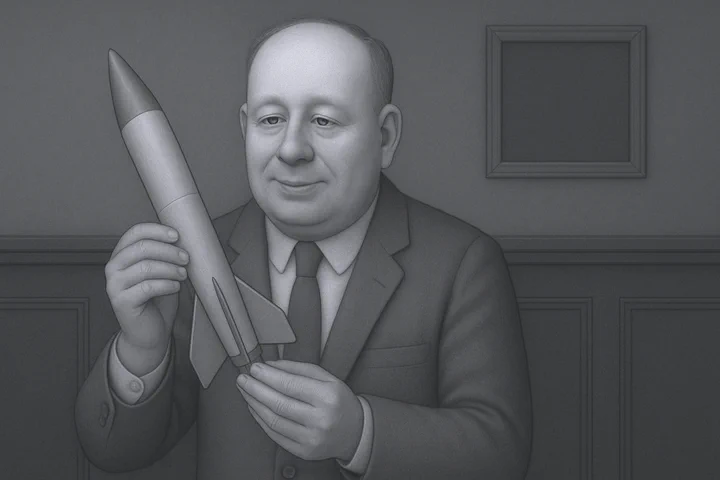Japan’s one-theater proposal won’t fly in South Korea

Japan’s ambitious “One Theater” proposal—to integrate U.S. allies across East Asia into a single unified operational command—is generating buzz in Tokyo and cautious interest in Washington. But in Seoul, the response is far more skeptical. And for good reason.
While the plan may serve Japan’s strategic goals, it is unlikely to gain meaningful traction in South Korea. The proposal’s inherent risks, combined with deep-rooted mistrust and divergent threat perceptions, all but guarantee it will be met with political resistance, military caution, and public opposition. Its only chance is a conservative victory in the forthcoming presidential election.
There are some fairly obvious reasons why the proposal won’t fly under a progressive administration.
First, at the heart of South Korea’s defense doctrine is the North Korean threat. This was true even under the Yoon Administration. Everything—from the structure of its armed forces to the rationale for hosting U.S. Forces Korea (USFK)—is centered on deterring or defeating aggression from the North.
Japan’s “One Theater” concept, however, is focused squarely on China, with talk of joint operations spanning the East China Sea, South China Sea, and even Taiwan. In this context, South Korea risks being dragged into military planning for contingencies that have nothing to do with defending the Korean Peninsula.
The idea that USFK will be repurposed to serve a broader regional mission undercuts its core function in Korean security.
Seoul has already expressed concern that diverting U.S. assets toward China deterrence dilutes the deterrent effect against Pyongyang. A proposal that integrates South Korea into a command structure prioritizing distant maritime flashpoints is not only politically toxic—it’s strategically irrelevant from Seoul’s perspective.
Second, Seoul already has operational control and sovereignty concerns. South Korea has spent years negotiating for wartime operational control (OPCON) of its own forces, seeking to replace the current U.S.-led structure with a Korea-led command. That goal would be fundamentally compromised by joining a multinational theater command that operates from Tokyo or Guam and serves priorities defined elsewhere.
If adopted, “One Theater” could entrench a hierarchy where Japanese and American priorities take precedence over Korean interests. It would reduce the status of the existing ROK-U.S. Combined Forces Command (CFC) and complicate Korea’s ability to exercise sovereign control over its military in wartime. No Korean government—conservative or progressive—can afford to sign away that kind of autonomy, especially after two decades of public debate over the OPCON issue.
Third, historical and political friction with Japan will sooner or later again emerge. While a progressive administration is unlikely to undo most policies implemented under the Yoon Administration, there are several which will certainly be de-emphasised. Several of these will relate to relations with Japan.
Even if the strategic goals were aligned and command structures were perfectly negotiated, South Korea’s participation in a Japan-led strategic framework would still be politically untenable. Historical memory remains raw. Japan’s imperial past in Korea continues to shape popular opinion and political discourse.
While the South Korea-Japan relationship warmed slightly under the Yoon administration, deep mistrust of Japan’s military ambitions remains embedded in both the public and the political establishment.
The idea of placing any South Korean military assets under a joint framework proposed by Tokyo—even if nominally multilateral—would ignite domestic backlash. It would be seen not as strategic cooperation, but as acquiescence to a rearmed Japan setting the regional agenda. No South Korean administration can realistically sell this to the public without suffering severe political damage. Even career diplomats are often afraid to be too involved in negotiations strengthening relations with Japan - it is simply a career risk when you know that the political administration will sooner or later flip.
Fourth, even conservative strategists are wary of entanglement. South Korea’s economy is heavily dependent on trade with China. Joining a theater construct aimed—implicitly or explicitly—at containing China would destroy any pretense of balance in Korea’s foreign policy. It would mark a shift from alliance coordination to strategic alignment, binding Korea to a military architecture designed for great power conflict.
This goes far beyond interoperability. It is a commitment to participate in a regional military campaign if conflict erupts in the Taiwan Strait or South China Sea. For a country still technically at war on its own peninsula, this is an unmanageable burden. It would increase the risk of entanglement in a conflict that Seoul has no ability to influence and every reason to avoid.
Contrary to what many experts in Washington believe, the trend of conservative political thought in South Korea is becoming more pro-independent rather than pro-American.
The stars and stripes (and the flag of David?) were constant features of pro-Yoon demonstrations. BUT when you look at the ages of those waving the flags, they were the remnants of an ideological age well past its prime (and a few young attention hounds who would be supporting any attention grabbing movement).
For Japan, the “One Theater” proposal is a natural extension of its shift toward a more proactive security posture. For the United States, it fits within a broader push for integrated deterrence. But for South Korea, it is a strategic non-starter. The proposal runs counter to its core security priorities, undermines its sovereignty, revives historical sensitivities, and threatens to entangle the country in conflicts beyond its control.
Without clear guarantees that Korea’s interests will remain paramount, and without airtight safeguards protecting OPCON transfer, Seoul is unlikely to endorse this framework. The political cost is too high, the strategic benefit too low, and the risks—military, diplomatic, and historical—too great. Japan’s theater may have many players, but South Korea is not signing up for the cast.
